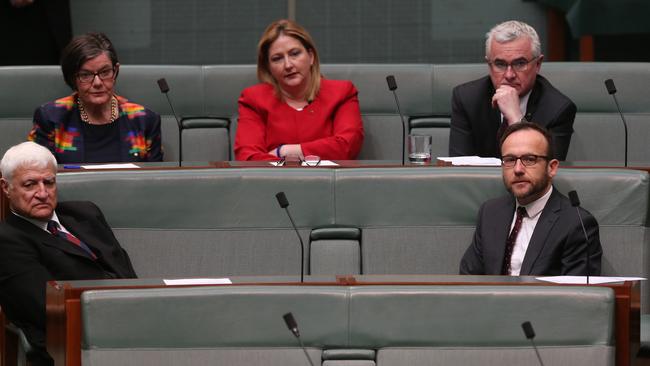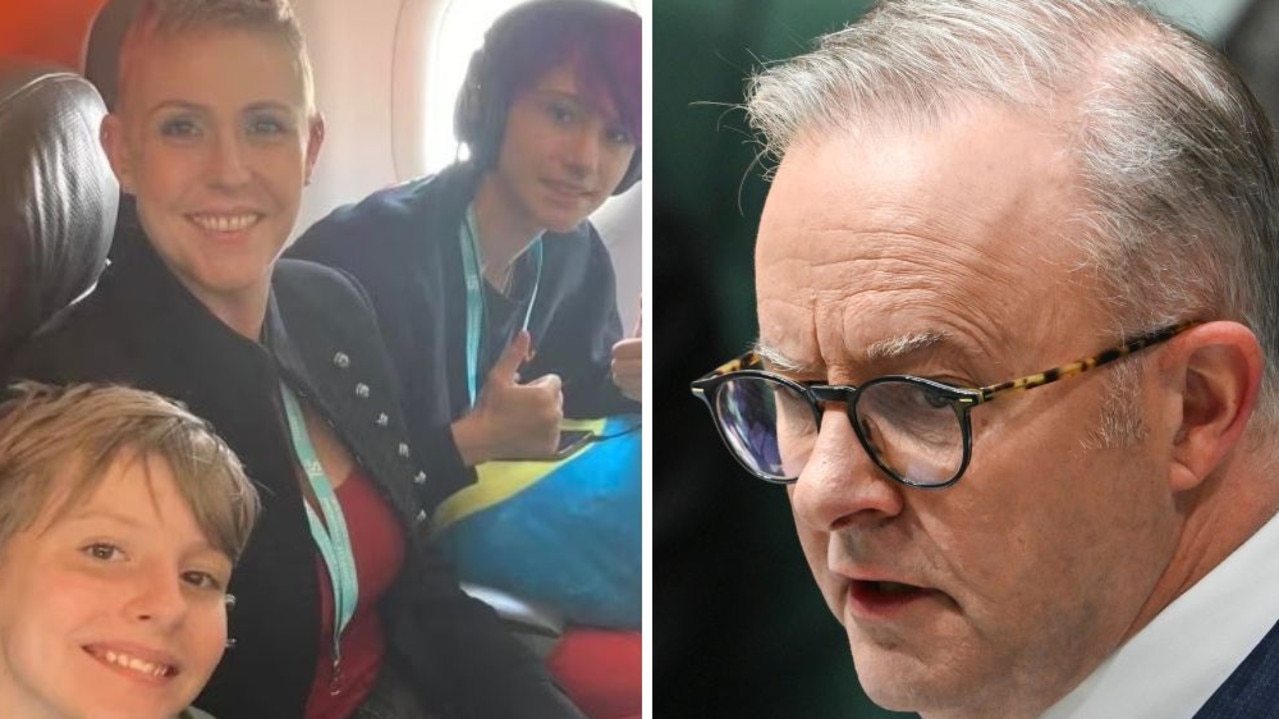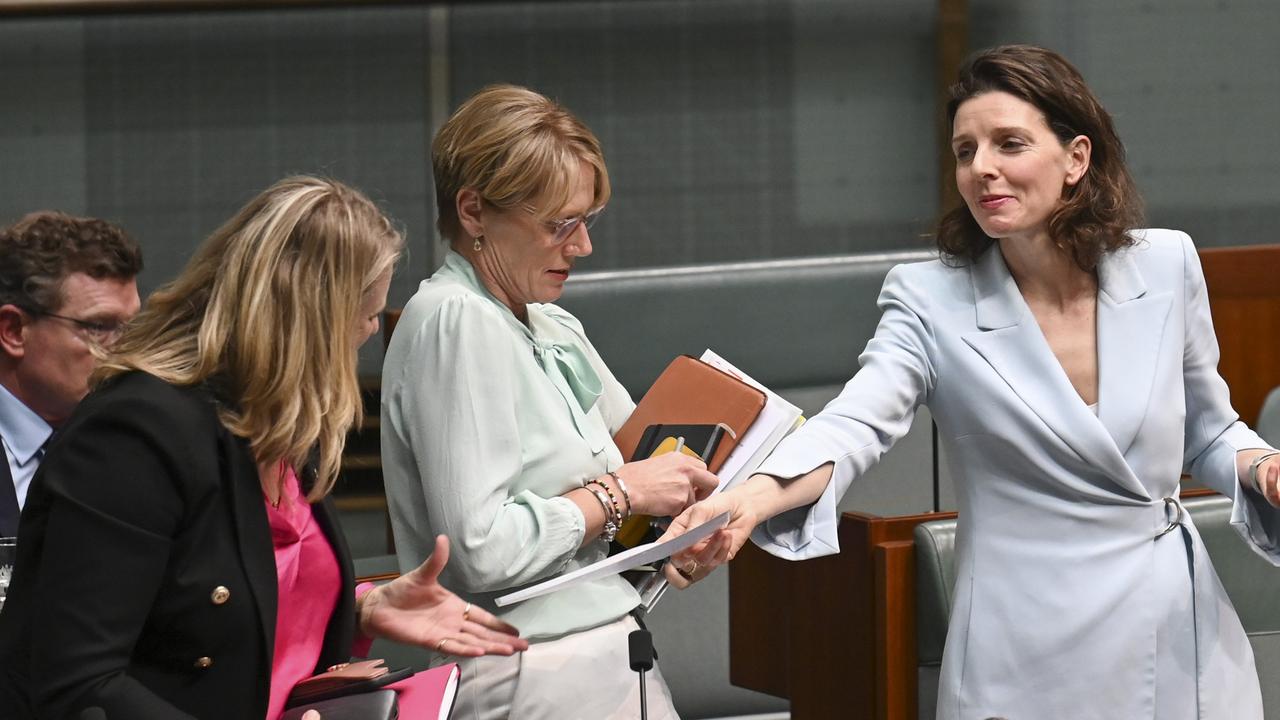Election 2022: Independents at home in house
First-time independent MPs are more likely than not to win a second term, suggesting most of the newly elected super-sized crossbench will become part of the furniture in Canberra.

First-time independent MPs are more likely than not to win a second term, suggesting most of the newly elected super-sized crossbench will become part of the furniture in Canberra.
An analysis by The Australian shows during the past three decades 10 of 16 independent and minor-party candidates elected to the lower house at a general election have been successful at a subsequent poll.
The power of incumbency, protest votes and the long-term decline in support for the major parties are factors in Saturday’s seismic shift to teal independents in the former Liberal heartland.
University of Sydney political scientist Sarah Cameron said “over a number of elections voters have been distancing themselves from the major parties”.
“The Australian Election Study shows a decline in political partisanship, with a record high number of voters in 2019 with no political affiliation,” said Dr Cameron, an AES investigator.
“We have an electorate that is increasingly volatile, where the proportion of people that don’t vote the same way at every election is at a record high.”
Member for Kennedy Bob Katter, elected in 2001, has won his regional Queensland seat eight times, while Tasmanian independent Andrew Wilkie and Greens leader Adam Bandt have prevailed in their inner-city seats five times since 2010.
Both recent independents in rural Victoria’s Indi, Cathy McGowan and Helen Haines, achieved a second victory in a seat held by conservatives from the Great Depression until 2013.
At this election, Ms Haines secured an 8.6 per cent increase in her primary vote.
In South Australia’s Mayo, Centre Alliance’s Rebekha Sharkie won a third campaign on a slightly reduced primary, but increased her margin in two-party terms by 7.4 per cent as the Liberal Party’s vote plummeted.
For her second victory in Warringah in Sydney’s north, teal independent Zali Steggall managed a 1.9 per cent rise in first-preference votes. After a 5.4 per cent drop in primary support for Liberal candidate Katherine Deves, Ms Steggall’s margin is now 10.9 per cent in what was once a blue-ribbon conservative seat.
Among independent and minor-party candidates elected since 1990, the list of “oncers” includes Clive Palmer, Rob Oakeshott and Pauline Hanson.
Dr Cameron said both the popularity of the major parties and their leaders was in decline. According to the latest figures, the combined primary vote for Labor and the Coalition on Saturday was 68.7 per cent. In 2007, 85.5 per cent of voters gave their first preference to a major party.
At this poll, the Greens received 11.8 per cent of all primary votes, up from 7.8 per cent in 2007.
Dr Cameron said “voting for minor parties and independents is often a protest vote against the major parties”.
“It can also reflect support for the platforms of these political alternatives, in the case of the teal independents – political integrity, climate action and gender equality,” she said.
“In this election, many independents had well-organised, high-profile and well-funded campaigns, while offering a way for voters to express their dissatisfaction with not only Scott Morrison but Anthony Albanese and Labor as well.”
Many independents have modelled themselves on two-term North Sydney MP Ted Mack, who retired from federal politics in 1996.
Tony Windsor won the northern NSW seat of New England four times as an independent, retiring at the 2013 election. Mr Windsor failed in a 2016 comeback bid, seeking to oust Nationals leader Barnaby Joyce.
Rural independent Peter Andren won the central western NSW seat of Calare four times.
The 2019 AES found 21 per cent of voters were not aligned with any political party; fewer than 40 per cent reported always voting the same way.
The study showed trust in politicians at record lows, with only one in four voters saying people in government could be trusted.


